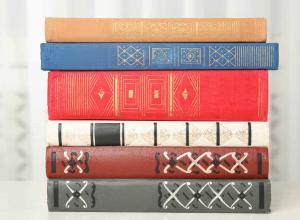Social climbing was a competitive sport in Tudor England, requiring a complex range of skills, strategies, and techniques. How to Be a Power Player: Tudor Edition invites you into a world of lace ruffs, jousting, hawks, bad handwriting, scandal, and political factions. Experience the playbooks, the people, and the spectacular fails, as courtiers tried to navigate the minefield of working for a boss who could shower you with riches or chop off your head.
The exhibition features more than 60 objects from the Folger’s collection to demonstrate the “rules” for how to be a successful courtier. They show how historical and literary figures ranging from royal advisors to household staff used cunning, cutthroat, and creative means to acquire power and curry favor with the Tudor monarchs.
Take the Tudor playbook and give it a 21st-century spin! Visit the Engagement Table in the exhibition gallery to create a playbook that highlights the risks you might take to become a power player. Draw your portrait, design a dinner menu, and come up with your own rule.
HIGHLIGHTS:
Portrait miniatures
As tokens of loyalty and affection, portrait miniatures were an intimate way to further one’s agenda. Power players commissioned Nicholas Hilliard and Isaac Oliver, the most talented and sought-after miniaturists in England, to paint these exquisitely detailed portraits, often set in locket-like gold frames. They were to be viewed privately, rather than hung on a wall for all to see.
Knights of the Garter
Becoming a Knight of the Most Noble Order of the Garter was one of the highest honors you could receive in Tudor England. Sir Gilbert Dethick, as Garter King of Arms, was responsible for the ceremonial aspects of the order. These velvet-bound books, gifted by him to Queen Elizabeth I, included the coats of arms of the Knights of the Garter.
Playbooks
To be a power player in Tudor England, you needed to study the playbooks. Potential senior advisors to the queen studied “courtesy books” and “mirrors for princes”, which described the qualities, skills, and behaviors necessary to succeed at court.
Books on view include a copy of Niccolo Machiavelli’s The Prince printed in 1584 in London, a political treatise that tells leaders how to gain and retain power.
Sun 11am - 6pm
Mon CLOSED
Tue & Wed 11am - 6pm
Thu, Fri, & Sat 11am - 9pm
FREE admission
However, we recommend that you reserve a pay-what-you-will timed-entry pass, with a suggested donation starting at $15.
Folger Shakespeare Library
201 E Capitol Street SE
Washington, DC
38.889387762809, -77.00281665
How to Be a Power Player: Tudor Edition















